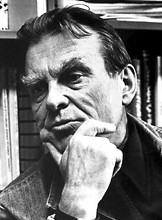Jan Wagner, The Missing Slate’s Poet of the Month for September, has been described as “one of the most important German-language poets of the younger generation“, and his work is rapidly attracting an international audience. In this interview, he tells Audrey Ryback about the process of translating poetry into English (and why he’d never consider translating his own poems), how and where and when he writes best, and how and where and when he finds himself unable to write at all.
The interview was conducted in German, Jan Wagner’s first language, and then translated into English by Audrey. To read the original version, click here.
Jan, you wrote your poem ‘ohio’ in German and Iain Galbraith later translated it into English. However, you yourself are an experienced translator: do you feel as though you know best how to translate your own poetry because you know exactly what you want to express? Does anything get lost in translation for you in the English version of ‘ohio’? And are there parts which you like even better in the English version?
There will always be elements that get lost in the translation of any poem. That is inevitable. However, those who lament these losses forget that a translation can also compensate for them in its own particular ways, through the unique qualities, the beauty of the new language. Ideally, what is lost and what is gained remain in equilibrium. Iain Galbraith masters this art of compensation because he is a wonderful and experienced translator. With him I know for certain that my poems are in good hands. Under no circumstances whatsoever would I want to translate my own poems into English, because I fear I would lack the finesse of a native-speaker, perhaps without even noticing my own inadequacies. However it is good when translator and author don’t shy away from asking each other questions, even those which they feel they already know the answer to.
You use just one English word in your poem: “blizzard”. Why did you choose the English word here? Does it often occur that when you are writing, words from other languages sneak into your texts?
It doesn’t happen very often, but occasionally when it is semantically or acoustically more convincing I do. For example, in this case I use “blizzard†because in my opinion it carries a force that the European Schneesturm (snow-storm) lacks and, simultaneously, defines the landscape, brings a local colour-palette into the poem.
In your poems, none of your nouns are capitalised (to the reader: normally, German grammar requires you to capitalise the first letter of any noun). If you had to choose a single word to capitalise in ‘ohio’, which one would you choose and why?
No doubt it would be the word previously mentioned: “blizzardâ€. In fact, not merely would the first letter of the word be capitalised, not just the B,—which would only render the whole thing grammatically correct and thus not particularly interesting—no, all of the letters would have to be capitalised, the “blizzard†would become a “BLIZZARDâ€. Thus, particularly in contrast with all the other letters, all of those tiny and hunch-backed words, it would gain a grandeur and force, a capital Impact, cold and humbling.
I love to write most: in a simultaneous state of presence and absence. When the momentum of my crafting of language and the poem lying in front of me become so irresistible that I lose my sense of time and abruptly, hours later, realize how late it has gotten. When silence fills the room and darkness lurks outside the window. In that phase that Frost described as “tantalizing vaguenessâ€, when everything seems possible but nothing yet has settled. How I write best: with a pen and a notepad, always by hand, seated in my armchair (which is as heavy as a vehicle but carries me much further), in the evening hours and at night. I cannot write at all: in cafes, sadly, with all of that hustle and bustle, the conversations, the smells, though on other occasions I love spending time there.
You begin your poem with “ohio†and end it with “chileâ€. Why specifically did you choose these two places? What meaning do they hold for you and what connects them?
It is more about the unfathomable distance between these two places. By naming them at the beginning and at the end, a sort of bracket is opened and the sheer magnitude of the distance between them is suddenly felt even in the place where the narrator of the poem is situated at that moment: in Ohio. But to the narrator all of a sudden the place becomes vast and unstable, he loses himself—in Ohio.





